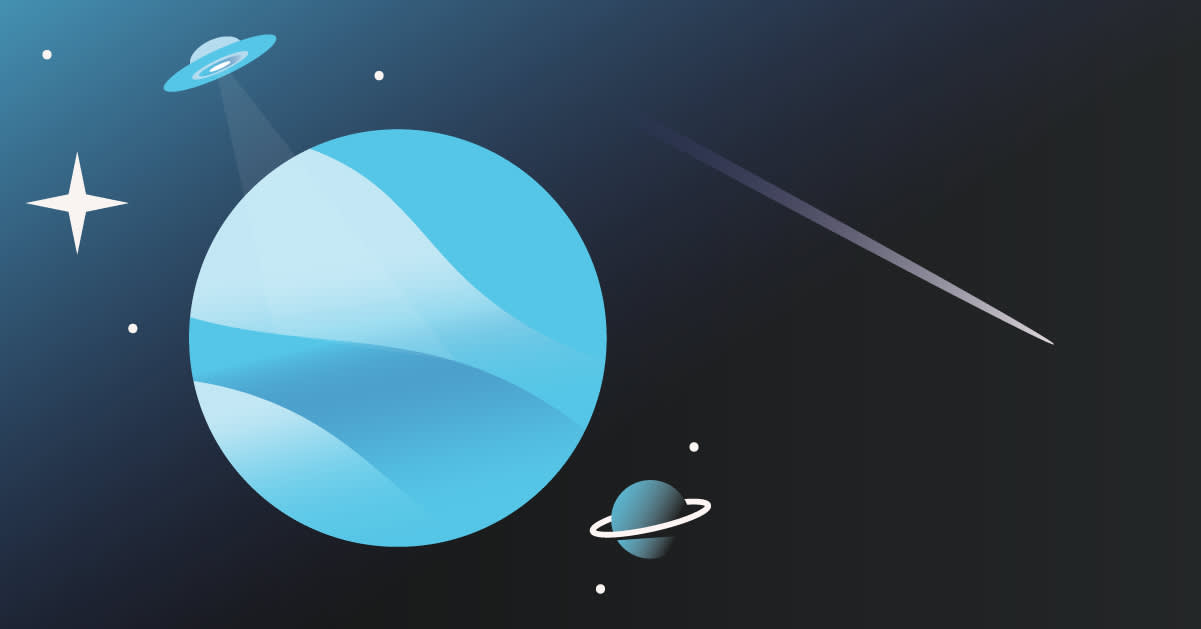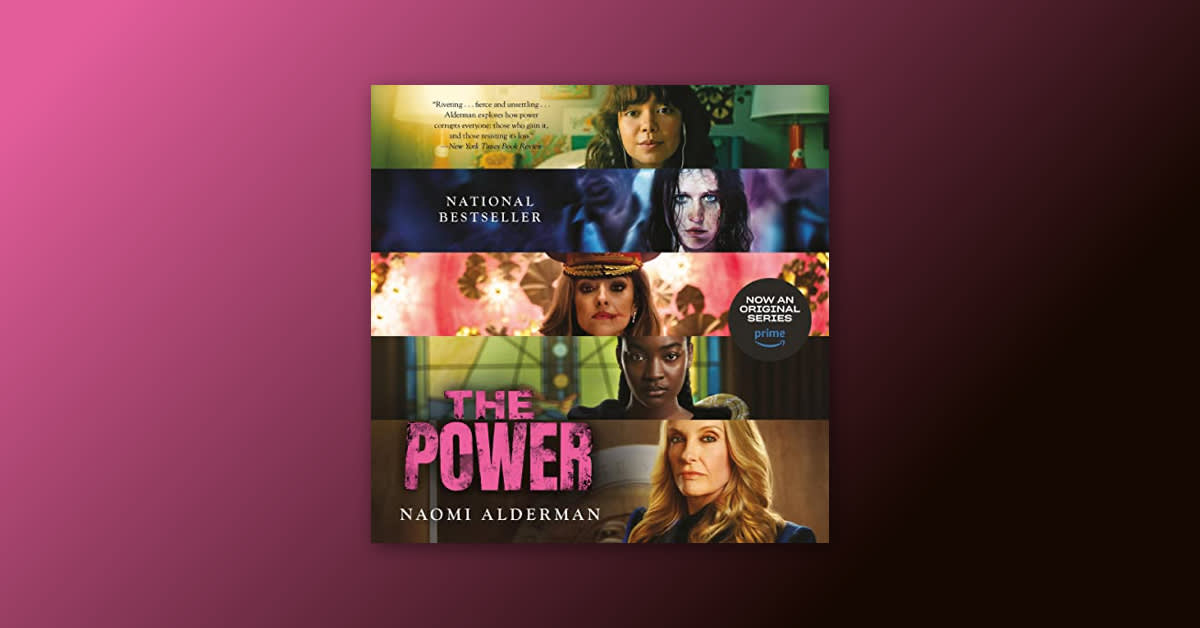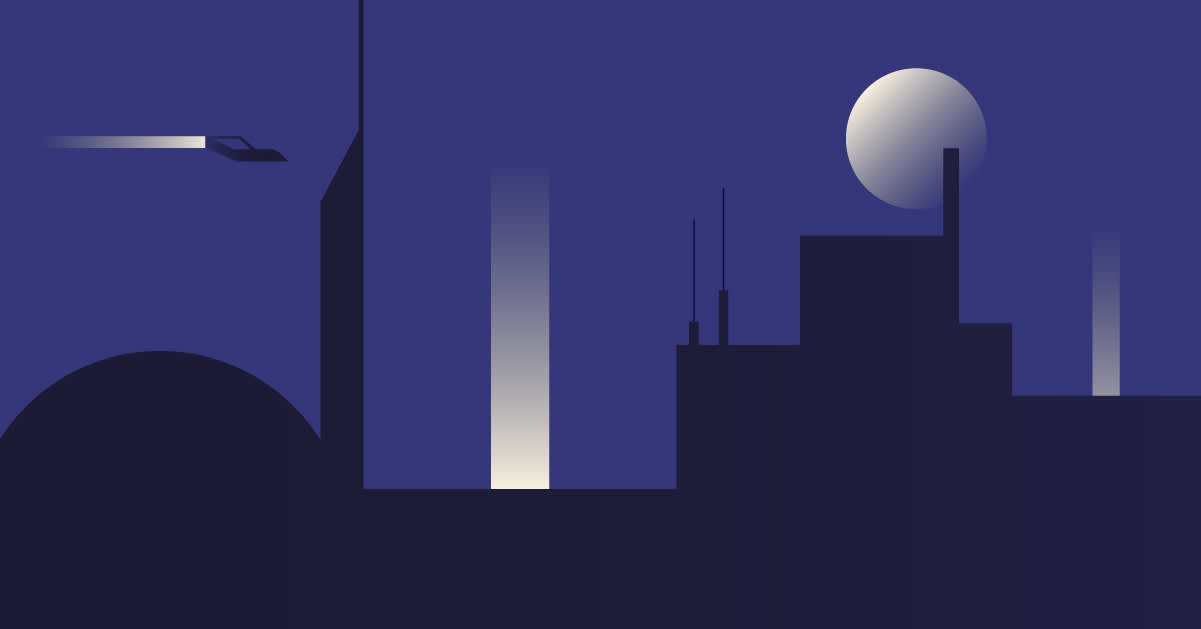Science fiction is a genre as diverse as you can imagine. There are stories that take place in deep space, often depicting teams exploring or running away from something; stories that focus on life at the most cellular level, such as a pandemic tale; and stories that take place in times that feel similar to our own, or not too far into the future. Depicting themes of existentialism, philosophy, hubris, and personal and historical trauma, sci-fi has a cadre of topics and moods to satisfy the palette of most any listener.
With so many stories, styles, and series to choose from, there’s an inclination to wonder, “Who is the best sci-fi writer?” Of course, that's highly subjective, and there are far too many talented writers to list in one place. We’ve put our all into picking just 14 of the best sci-fi authors of all time—a diverse range of writers who represent a few of our favorites.
John Scalzi
John Scalzi has a delightful web presence through his Twitter account and blog, and luckily for fans, his sci-fi stories reflect the same passion and talent for crafting captivating narratives. It doesn’t hurt that his audiobooks are narrated by some of the best performers in the business either, making Scalzi's work a particular joy to experience in audio. Among his most beloved is the Old Man's War series, a six-part saga depicting the various wars waged for control of the few planets in a universe that can sustain life. The series maintains an engaging sense of humor throughout—for instance, there’s his nickname for a group of geriatric recruits for space defense duty: the “Old Farts." If you're looking for an approachable and always-entertaining way to dive into the sci-fi greats, John Scalzi is an excellent place to start.
Old Man's War
At 75 years old, John Perry is after a fresh start - so, naturally, he joins the army. Earth's military machine can transform elderly recruits, restoring their lost youth. But in return, its Colonial Defence Force demands two years of hazardous service in space. This is how Perry finds himself in a new body crafted from his original DNA. A genetically enhanced and upgraded new body, ready for battle. But upgrades alone won't keep Perry safe. He'll be fighting for his life on the front line as he defends humanity's colonies from hostile aliens. He'll pay the price for his choices, and he'll discover the universe is even more dangerous than he imagined.
N. K. Jemisin
With both sci-fi and fantasy series to her name, N. K. Jemisin is perhaps best known so far for the Broken Earth trilogy, which won three Best Novel Hugo Awards in a row. Taking place on a future Earth long-ravaged by intense, climate change-induced weather, the series is a seamless blend of science fiction and fantasy, containing equal parts enchantment and science in its depiction of the magic system’s geological foundation. The author continues to take the genre in new directions with the arrival of The City We Became, the first in a new trilogy that blends sci-fi with urban fantasy.
The Fifth Season: Booktrack Edition
The Broken Earth Trilogy
Book 1: The Fifth Season; Book 2: The Obelisk Gate; Book 3: The Stone Sky
Not only is this trilogy amazing-it is an important part of literary history. The Fifth Season won the Hugo Award for Best Novel in 2016, making Jemisin the first African American writer to win a Hugo Award in that category. And the last two installments in the series also won that award, making her both the first woman and the first African American, to win for a trilogy. This is a complex, riveting series about a supercontinent called the Stillness in a time of catastrophic climate change.
Ray Bradbury
Although Bradbury is known for books that vary in genre, his dystopian novel Fahrenheit 451 is so significant to sci-fi, and speculative fiction as a whole, that we'd be remiss not to include him on this list. This classic work, a mainstay of high school curriculum in the United States, explores the moral implications of humanity's technological advancements by depicting a society in which books are outlawed and burned on sight. Bradbury was also the author of The Martian Chronicles, a sci-fi novel constructed of thematically connected short stories. When thinking of the literary possibilities of science fiction, Bradbury is a must-hear writer.
Andy Weir
With a surprising sense of humor (beginning right from its opening line), The Martian was a major sci-fi hit a few years back, introducing listeners to Andy Weir, who had worked as a software engineer before the novel's success. After finding himself trapped and alone on Mars, Mark Watney begins his attempts to use his knowledge and skills to do the impossible: survive long enough to somehow signal to Earth that he is still alive. With his second novel, Artemis, Weir confirmed his status as a true sci-fi talent—a voice to keep watching for and listening to in the coming years.
The Martian
Six days ago, astronaut Mark Watney became one of the first people to walk on Mars. Now, he's sure he'll be the first person to die there. After a dust storm nearly kills him and forces his crew to evacuate while thinking him dead, Mark finds himself stranded....
Frank Herbert
Dune is a work synonymous with science fiction. It was one of the most successful novels of its genre at the time of its original publication, and it went on to become a beloved and influential classic series. As if that wasn't enough, author Frank Herbert kept himself busy throughout the following 21 years of his life with several other series, standalone novels, short stories, and works of nonfiction. He was also a lecturer, journalist, photographer, and book critic. His passion for words and storytelling is evident in his body of work.
Dune
By Frank Herbert
Narrated by Scott Brick, Orlagh Cassidy, Euan Morton, Simon Vance, Ilyana Kadushin, Byron Jennings, David R. Gordon, Jason Culp, Kent Broadhurst, Oliver Wyman, Patricia Kilgarriff, Scott Sowers
Dune
Set on a desert planet, Dune is the story of Paul Atreides, who would become the mysterious Maud'dib, avenge a plot against his family, and bring to fruition humankind's most ancient dream....
Dennis E. Taylor
Retired computer programmer Dennis E. Taylor made his debut as an author in 2016 with We Are Legion (We Are Bob), and quickly became one of the most exciting voices in modern sci-fi. We Are Legion is the first in Taylor's Bobiverse series, a harmonious mix of hard sci-fi with humor, featuring an incredibly likable central character. Since his initial success, Taylor has released several standalone audiobooks, including Outland and The Singularity Trap.
We Are Legion (We Are Bob)
Winner: Sci-Fi
We Are Legion (We Are Bob) was the surprise sci-fi hit of 2016 for our editors and listeners alike. Reviewers have compared its mix of high-stakes action and genre humor to such hits as The Martian and Ready Player One. Moreover, it’s one of those books that seems positively made for audio: Who else but Ray Porter (14, The Fold) could evoke geeky irony during a suspenseful battle scene, all while assigning unique voices and personalities to a pack of otherwise-identical clones? See all finalists in Sci-FiUrsula K. LeGuin
Ursula K. LeGuin is among the rare authors who excelled at both fantasy and sci-fi to great acclaim. While Earthsea is her monumental work on the fantasy side, it is the Hainish Cycle that stands tallest among her science fiction work. Including perhaps her best-known novel, The Left Hand of Darkness, this collection of stories that take place in the same universe exemplifies LeGuin's prowess for spinning elaborate and satisfying plots set in wholly imagined worlds. LeGuin continued publishing poems and articles until her death in 2018, solidifying her place as not only a great sci-fi writer, but an incredibly gifted and adored literary force.
The Left Hand of Darkness
I snuck this one in even though it is technically a zucchini rather than a beet — being set on another planet — because I like it a lot, and because it’s even more relevant now than when it was written. The two kinds of society described have lessons for us all — I prefer the society that goes in for court intrigues rather than wars, but I may be very old-fashioned. As for the gender-shifting, “intersectionality” doesn’t even touch it. Radical in the ways it forces the reader to imagine other ways of being human.
Cixin Liu
Although Cixin Liu became a widely known sci-fi author with the success of The Three-Body Problem, the debut volume in his Remembrance of Earth's Past trilogy, he had published four previous novels as well as numerous works of short fiction. Liu writes hard science fiction with threads of conspiracy and existential pondering. Residing in the Shanxi Province of China, Liu is a notable figure in Chinese science fiction, as well as a highly successful author recognized globally for his translated works.
The Three-Body Problem
Liu Cixin is arguably the most prominent science fiction writer in China right now. His Remembrance of Earth’s Past trilogy has garnered multiple awards, both in China and the West. The hard sci-fi trilogy describes humanity’s journey to the stars on a sweeping scale, both in time and space. All three novels in the trilogy have been translated into multiple languages, including English, starting with The Three-Body Problem, which takes place in part during the Cultural Revolution, to The New York Times best seller Death’s End, which fast-forwards to a far future to explore the fate of humanity.
Robert A. Heinlein
When we talk about "hard science fiction," it refers to a subgenre that strictly adheres to scientific fact and reasoning when crafting the imagined worlds of far-flung space missions and alien planets. Robert A. Heinlein was among the earliest pioneers of the subgenre, with works like Stranger in a Strange Land and The Moon Is a Harsh Mistress, setting the standard for countless future works.
Stranger in a Strange Land
Valentine Michael Smith, an earthling born and educated on Mars, arrives on Earth with superhuman...
Octavia E. Butler
Either the Earthseed series or the Xenogenesis series alone would be enough to cement any sci-fi author’s place in the annals of all-time greats. The fact that Octavia Butler wrote both—in addition to a litany of standalone novels, adaptations, and short fiction, plus another series—is an undeniable testament to why she ought to be considered as one of the best sci-fi authors ever. With a startling knack for capturing human flaws and emotions in high-concept settings, Butler's work is at once speculative and literary.
Parable of the Sower
Among the first fictions that you might term “eco-feminist,” if you were in a terming mood. This series is now a classic, and underlines a true thing: The condition of women and the condition of the environment are closely joined. These three books follow the small community of Earthseed as it struggles against both horrible conditions and horrible people. Much to ponder.
Philip K. Dick
When considering the legacy and impact of Philip K. Dick, one can make the case for his inclusion on this list solely from the number of successful films based on his novels. For every great movie made from Dick's oeuvre, the work itself shines even brighter, and standout narration makes it even more exciting to experience in audio. Ubik and A Scanner Darkly are just two examples of great writing and storytelling in a bibliography including more than 40 novels.
Ubik
Glen Runciter runs a lucrative business - deploying his teams of anti-psychics to corporate clients who want privacy and security from psychic spies....
Martha Wells
Martha Wells is another author well known for working in both fantasy and science fiction. The Murderbot Diaries is an intense series of sci-fi novellas about the morality of artificial intelligence. With six books in the series so far, each installment is an exciting story that shows off Wells's talents with language and plot. With both Nebula and Hugo awards to her name, Wells continues to live up to her reputation with each new release.
All Systems Red
In an era dominated by robotics and artificial intelligence, All Systems Red is a particularly relevant listen that’s utterly unpausable. Narrator Kevin R. Free delivers a mechanical cadence with an undercurrent of wry, crackling wit as he voices the protagonist—a robot that calls itself Murderbot, in reference to a rampage from years ago in which it hacked its own code to gain independence from its programmer.
When the grouchy, reclusive Murderbot is sent on an exploratory mission to a new planet, its team stumbles upon the murdered remains of a previous mission and must solve the mystery of what happened, all while fending off a new attack. A cyborg-led thriller with just the right amounts of intrigue, heart, and humor, All Systems Red is an excellent choice for a fast-paced, short sci-fi listen.
Isaac Asimov
In the early half of the 20th century, the Golden Age of Science Fiction introduced sci-fi to a wider audience than it had ever enjoyed. Isaac Asimov was a cornerstone of the movement, having introduced the concept of the Three Laws of Robotics in his seminal novel, I, Robot. These three rules, which detail the expected behaviors of robots in science fiction, became fixtures of the genre during this age—and Asimov remains a towering and prolific figure who authored more than 500 books (!).
I, Robot
Isaac Asimov’s Robot series – from the iconic collection I, Robot to four classic novels – contains some of the most influential works in the history of science fiction. Establishing and testing the Three Laws of Robotics, they continue to shape the understanding and design of artificial intelligence to this day.
What happens when a robot begins to question its creators? What would be the consequences of creating a robot with a sense of humour? Or the ability to lie? How do we truly tell the difference between man and machine?
In I, Robot, Asimov sets out the Three Laws of Robotics – designed to protect humans from their robotic creations – and pushes them to their limits and beyond.
Following genius robopsychologist Dr. Susan Calvin and engineers Powell and Donovan, these short stories helped to transform artificial intelligence from a dream into a science and changed perceptions of robots for ever.
Kurt Vonnegut
Kurt Vonnegut is not generally considered a science fiction author. Yet, many of his earliest novels and short stories were important contributions to the genre during the New Wave science fiction movement in the 60s and 70s. Player Piano and The Sirens of Titan are vital sci-fi novels and contain traces of the sardonic humor and keen insights on humanity that would mark Vonnegut's later work. Almost all of Vonnegut's short stories have been committed to story collections, like Welcome to the Monkey House, so there is no shortage of material from this great literary mind to work your way through.
Player Piano
Kurt Vonnegut's first novel spins the chilling tale of engineer Paul Proteus....
D.R. Baker is a writer and musician based in New York City. Their work has appeared at Book Riot, Submittable, HowlRound, and others.


















